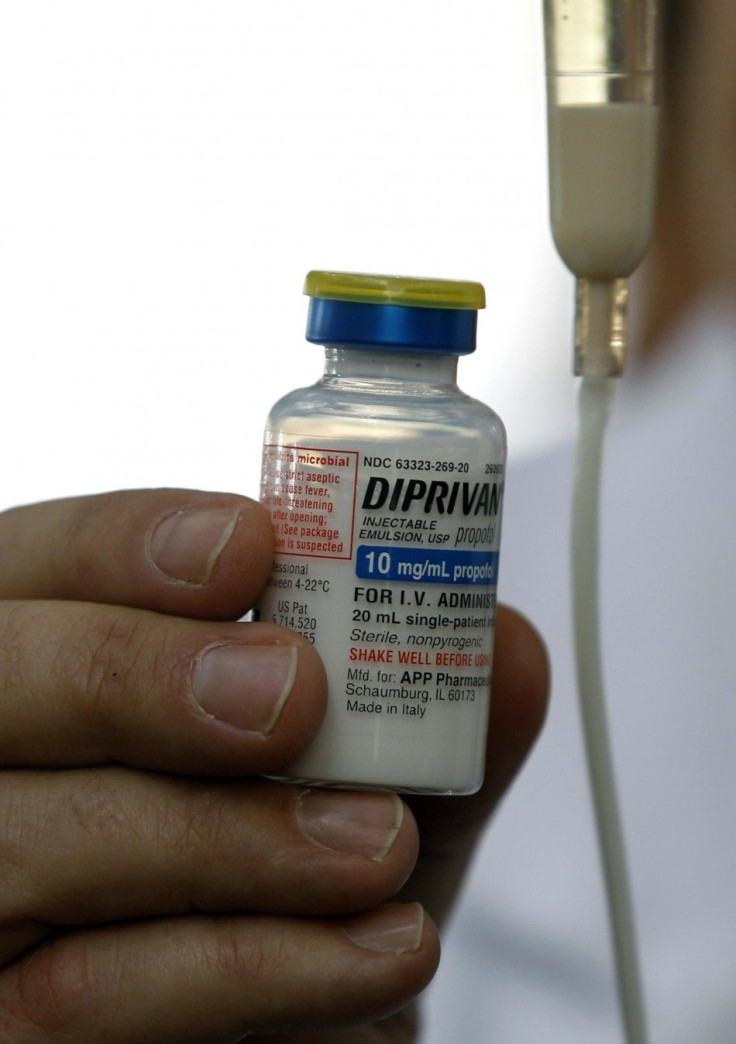Michael Jackson's Doctor Conrad Murray Trial Day 2: 'There's Some Cream in Michael's Room'

The trial of Conrad Murray, Michael Jackson's doctor, continued on Wednesday, Sept. 28, with the witnesses, who took the stand, trying to give the jury a picture of the singer's final days.
Prosecutors accused Murray of giving the star an overdose of anesthetic propofol as a sleep aid and for failing to give timely medical assistance, even after he found Jackson unresponsive at 11:56 am (2:56 pm EDT/1856 GMT) on June 25, 2009.
The Co-CEO of AEG live and Jackson's concert promoter Paul Gongaware took the stand, claiming that Murray even asked $5 million dollars from the singer to work as Jackson's person doctor, for he should close four clinics and lay off employees.
I told him there was no way that was going to happen, Gongaware said. However, Jackson insisted on choosing Dr. Murray as his personal doctor for the preparation of the forthcoming comeback concert. They got the final agreement for $150-thousand dollars a month deal.
Kathy Jorrie, an attorney for tour promoter AEG Live, also testified on Wednesday, saying Murray assured that Jackson was perfectly healthy, in excellent condition. However, Jorrie testified that Murray asked for a CPR machine, saying that it's a precaution due to Jackson's age and the strenuous performances.
According to the contract between Jackson and Murray, Murray was hired as an independent contractor, but was being provided many welfare benefits, including airfare to and from London, housing in the city, a private vehicle, liability insurance and medical malpractice insurance.
The contract, which both sides were supposed to sign, however, still remained as blank, which means Murray never got his salary, even though he had worked for the King of Pop for about two month.
The contract was not signed by all the required parties, Jorrie said. No payment was made by my client (to Murray).
Michael Amir Williams, Jackson's personal assistant, gave a dramatic testimony to the jury.
Murray called Williams for help at 12:12 pm, June 25, 2009, leaving message, Call me right away, call me right away, thank you.
William called him back at 12:15 pm, getting the information that Jackson was in a bad reaction.
When I hear a 'bad reaction,' I wouldn't think anything fatal, personally, and I wasn't asked to call 911, Williams said.
It was real frantic. I got there when the gurney (carrying Jackson) was coming down from the bedroom, Williams said. According to Williams, when he arrived at Jackson mansion the ambulance was already there.
When Jackson was pronounced dead, Murray asked others to give his a ride to retrieve some cream in Jackson's house.
He said, 'There's some cream in Michael's room that he wouldn't want the world to know about,' and he requested that I or someone would give him a ride back to the house, so that he could get the cream, Williams said.
Prosecutors have hinted that Murray might want to retrieve and wipe out the drugs that he had given Jackson before he died.
The trial is scheduled to last about five weeks. If convicted, Murray could serve a sentence of up to four years in prison and also lose his medical license.
© Copyright IBTimes 2025. All rights reserved.





















